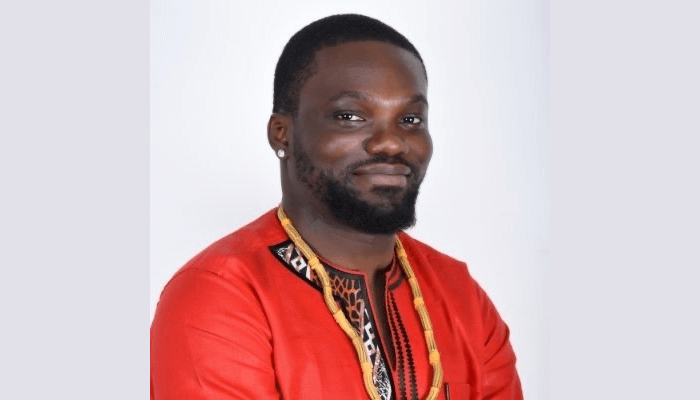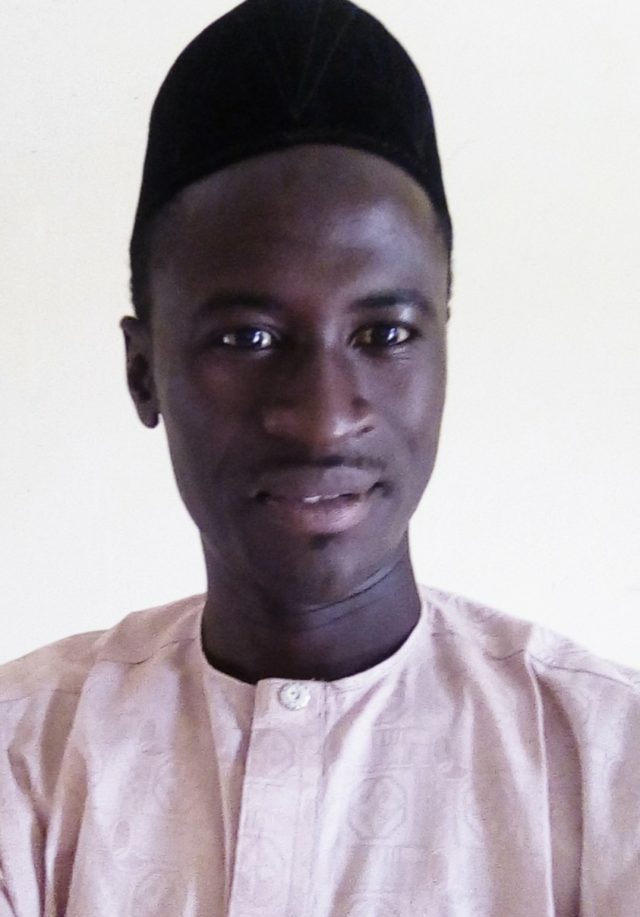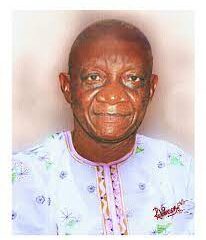Democracy & Governance
The Drums and Dramas of David Hundeyin -By Ismail Misbahu
As a founder and columnist of West Africa Weekly, Hundeyin couldn’t have been overtaken by the question of unethical tendencies, which at a start, ‘guided’ the historical direction of the growth and development of print and broadcast media in Nigeria!

My comment has not been any late i.e. barely two months since the expose of the Boko Haram financier, an alleged Islamic establishment in Northern Nigeria, by David Hundeyin, a columnist with the West Africa Weekly, on October, 2, 2021.
I am not a journalist in the strict sense of professional qualification. However, I read around the question of ethical reporting and its essential principles: truth, justice, balance, equity and fairness etc.—that is worth the value of any investigative journalism and indeed qualified a real professional journalist. Judging from his evidence-based facts investigation and the unfolding analysis of the actors and factors involved, as well as the identity of each in relation to another, Hundeyin’s “Cornflakes for Jihad: The Boko Haram Origin Story” no doubt attested to some of these criteria, however not all.
Appreciated as much as any citizen with patriotic vision of a peaceful Nigeria could have done, Hundeyin’s expose—(https://westafricaweekly.substack.com/p/cornflakes-for-jihad-the-boko-haram) on the multi-lineal Whhabi/Salafi terror chains and the projected Saudi-Algerian Wahhabi terror doctrine being materialized in Nigeria and elsewhere in West Africa are, of course, drums with sound beatings! He’s done well. However, these Salafi/Wahhabi adherents are not alone.
One needs to also dig deeper, unearth and understand the possible relationships between the Algerian based ‘GSP’—“Groupe Salafiste pour la Prédication et le Combat” (Salafist Group for Preaching and Combat) and Saudi-Wahhabi doctrine on the one hand; and the latter in relation to international (Western) players in Middle East. The real culprit is all the West—and its Middle-Eastern allies notably Israel much as you can imagine. One of the devastating impacts of Middle-Eastern International diplomacy is that it has universally claimed too much of the souls of many of the faith-based sectarian organisations especially within the mainstream global Islamism. These Salafi/Wahhabi ‘champions’ of politico-religious Islam could do whatever it takes to be favoured by the West just to become the brand designers of Islamic legal system across the globe. And it’s all a bet, for quite a number of Muslim countries, just as the Christians ditto, follows a similar path to bait, and market their Islamic foreign policy doctrines.
Once you get clear of the already known fact that the West (and the United States of America) consider Saudi Arabia as a guaranteed stimulator to their years-old destabilization agenda against the Iranian strategic position in Middle-East, in addition to the latter’s iconic regional policies and seemingly ‘weird’ agenda for nuclear weapons, the more you understand how deeper the West has sunk into the ribs-cracking midst of the global sectarian Islamic divides. One must be curious to ask, from where, and how, the West derived the ‘clues’ of building a ‘Wahhabi Mission’ in the midst of a leading Muslim country, Saudi Arabia?
What guides the choice of the West to exploit the subjective instincts and doctrinal rigidity of a Muslim denomination, the “Wahhabi Islam” to fund an ideologically ‘anti-Islamic’ terror mission against targeted populations in Middle East, North Africa, Nigeria and the rest of West Africa? We must indeed subject to our probe within reason, why this charge against the Salafi/Wahhabi adherents attests to the facts that: one, the woven fabrics of the United States-Israeli-Saudi Arabian alliance in Middle-East was meant to produce a Western-oriented Islamic-puppeteer hegemony against Iran and the Sunni Muslim countries of say UAE and Bahrain. While the Western devil in Palestine may widen the geo-religious enmity between the latter two Muslim (Sunni) countries and Israel, they still couldn’t have been able to get outside the circle of U.S. ‘protection’ against the ‘regional imperialism of Iran’. Two, this alliance was meant to booster the ‘Saudi-Wahhabi spirit’ to terrorise and crackdown any strongly fair, and objective sectarian version of Islam in Syria, Iran and the rest of Muslim countries across the world.
Thirdly, this alliance has no real sympathy to ‘Wahhabi Islam’ denomination in particular, and to Saudi government as a whole. If at all, the bond of this alliance with the Saudi-based Wahhabi movement has turned to disturb the latter’s co-existence with the rest of other Muslims all over the world. The West has indeed succeeded in luring the fame-champion Wahhabi/Salafi Islamists into the framework of her global anti-Islamic agenda which, had she not sapped the strength and exhausted the energy of this ‘greedy Muslim creed’, could not have been able to realize. Not even the Hundeyin’s ‘Cornflakes for Jihad’ in this regard, could have been so trending on the online newspapers and social media.
Only if a true, thorough and objective comprehension of all the above is sought could the impression that the Boko Haram and other terror insurgencies in Nigeria, the rest of Africa and indeed the world at large are ‘an act of Islam’! Hundeyin’s impression that “Boko Haram is a logical development growing out of the rise of political Islam in Nigeria’ … and that “this group has in fact been incubating and nurtured at the highest levels of the theological, economic and political spaces in Northern Nigeria”, even as he has undeniably attested to its root within the sectarian Wahhabi/Salafi indoctrination, seems nevertheless, promoted the same ‘conspiratorial’ hogwash rolling in the minds of many Christians who have nothing to differentiate about what ‘All’ is this Islam to the West on the one hand, and the latter’s reference of the former with terrorism on the other. Hundeyin himself has gained a drop of sense about this when he seemed cautious of the fact that “Boko Haram in reality, is so much bigger than Mohammed Yusuf and Abubakar Shekau that reducing it to those 2 men serves to miss the actual story spectacularly.”
If and where this cornflakes is anything contributory to the understanding of the materialistic evolution, growth and development of BH and its alleged perpetrators within the Salafi-Islamic establishment in Northern Nigeria, it is so only as it is ‘interested’ by the writer. Yes, just ‘interest’ because Hundeyin’s expose has not been objectivised to balance a true humanistic analysis. I mean that kind humanistic feeling the revered Mathew Hassan Kukah always preen on the public eye! I will return to this issue. Although Hundeyin cannot be unprofessional in his practice, he’s acted as though he has lost the clot of the blood—that humanistic spirit that gives professional journalists a clear vision of issues beyond any religious lobby. No doubt Kassim’s remark raised the curiosity of him being ‘too sensational’ with ‘conspiratorial conclusion’.

One of his interesting dramas, as it’s common to every writer, is an issue he adjuncts but which may be seen by many, as a silly factor that may not generate, or stand the validity of any response. It goes like this:
“Fast forward 33 years. It is Christmas Day in 2011 and Abubakar Gumi has been dead for over 19 years. A bomb suddenly goes off at St. Theresa Catholic Church, Madalla, on the outskirts of Abuja, killing 35 people and wounding a further 52. Almost simultaneously, a series of coordinated bomb attacks and shootings take place at churches in Jos, Gadaka and Damaturu. An obscure Islamist group calling itself Boko Haram claims responsibility for the attacks.”
Hundeyin might have assumed that a new ‘cornflakes’ like this could be chewed and tested easily, careless to think that it may turn almost all the issues he raised about NASCO into the glare of public suspicion. I thought he would be careful of his journalistic ethics and respond to the above issue in the same way Rev. Kukah did when, in one of his 2011 articles titled “Do Not Be Afraid” remarks that:
“Right now, I feel like the friends of Job (Eliphaz, Bildad and Zophar), who came to visit their sick friend and found the burden beyond comprehension. For, as we know, when they came and found Job in his condition, they spent seven days and seven nights, and uttered not a word (Job 2:13). Right now, no one can claim a full understanding of the state we are in.”
Now it is Hundeyin who got to understand the state of the moment, let’s say it is like that and reflect on the plea he’s staged:
“For the people who have died in the Madalla Christmas Day Bombings facilitated by the people he [Nasreddin] funded and supported, there will be no justice. Nasreddin gets to hand over NASCO to his son, and he lives out the rest of his life in peace and comfort, dying at the ripe old age of 96.”
Looking at the above, how could someone do justice to Mr. Hundeyin’s appeal when considering the earlier incidence of the invasion, in this same year (2011), of Muslim worshippers at Rukuba Eid ground in Jos, Plateau state on Sallah Day, of the last Ramadan, by alleged ‘Christians’ from the neighbourhoods. Many of the Muslim worshippers were killed and mutilated while more than three hundred (300) vehicles were set ablaze. Were these attacks also funded and supported by the same Nasreddin? Or did the attacks by the Algerian-BH Group which the Nasreddin funded only target Christians? The bombardment of a street in front of a Catholic Church on Christmas Day in Madalla still did not necessarily have to be at the behest of ‘Nigerian Muslims’ or even for that matter motivated by religious considerations despite the claims made by a ‘masked witness’. So far, the overwhelming majority of the victims of these presumed BH attacks were Muslims including prominent community leaders and ward heads.
Indeed we still have Rev. Kukah saying that:
“The tragedy in Madalla was seen as a direct attack on Christians. When BH claimed responsibility, this line of argument seemed persuasive to those who believed that these merchants of death could be linked to the religion of Islam. Happily, prominent Muslims rose in unison to condemn this evil act and denounced both the perpetrators and their acts as being un-Islamic. All of this should cause us to pause and ponder about the nature of the force of evil that is in our midst and to appreciate the fact that contrary to popular thinking, we’re not faced with a crisis or conflict between Christians and Muslims. Rather, like the friends of Job, we need to humbly appreciate the limit of our human understanding.”
The Pastor moved further to add that:
“Let’s take a few examples of events in the last week alone: in Kano, amidst fears and threats of further attacks on Christians, a group of Muslims gathered round to protect Christians as they worshipped. In Minna and recently Lagos, the same thing repeated itself as Christians joined hands to protect Muslims as they prayed. In the last week, Christians and Muslims together in solidarity are protesting against bad governance and corruption beyond the falsehood of religion. Once freed from the grip of these dark forces, religion will be able to play its role as a force for harmony, truth and the common good.”
Perhaps the Rev. Pastor might have not said all the above had the expose by Hundeyin trended at the time. I doubt still however, if Rev. Kukah could still make a reverse against the fact that, if members of each faith could stand and protect each in favour of another and even further felt the need to unite against a common enemy, himself would not subscribe to a remark that seems to show that only Christians were victims of an Algerian-based Wahhabi Mission funded and supported by a Muslim Nasreddin because, doing so could hardly make any sense. Not only that this may sound ridiculous to the Pastor but also it has not done justice to the rest of larger number of Muslim population across the country. If only for the incident at Madalla, the Pastor’s remarks are enough to further impose severe limitations on the assumption that all the attacks and killings carried out by BH were funded and supported by NASCO Group. Otherwise how could someone explain the subsequent incidents in Borno, Yobe and Bauchi states including the incident in Kano that claimed the life of an influential and reputable Islamic cleric, Sheikh Mahmud Jafar Adam? Were all these incidents also funded and supported by the NASCO Group?
Hundeyin seems to have trashed away the essential ethical questions of balance, equity and fairness. Not least is the more important question of independence, which perhaps he couldn’t have secured because of his ‘conspiratorial leaning’! He instead advocated the same position with Pastor Ayo Oritsejafor—the then president of CAN, when he ‘declared’ on Wednesday, 28th December, 2011 at the head of a CAN delegation to President Jonathan in Aso Rock, that:
“He and his followers hold responsible, all the traditional and Islamic leaders of this country, particularly the Hausa-Fulani of the North, for the Boko Haram strikes against Churches and Christian communities. Moreover, he said that these attacks amount to a declaration of Jihad on Christians and the Nigerian state.”
A ‘declaration’ such as this, at best amounts to saying that the BH insurgents were mandated to do what they’re doing by the entire Muslim community and that the security arrangement of the country is presumably faith-based that a special cover could be given to one faith against another. At worst, this statement could be interpreted as a bare-faced declaration of inter-religious conflict nationwide.
If you put too much sugar in the cornflakes it wouldn’t be sweet, and that’s exactly what Hundeyin did. Part of the dramas he staged, is of course, the way he put in unnecessary inserts that have less importance or no relation at all to the core issue he rightly subjected to an investigative scrutiny: this question of Madalla incident and that of the farmer-herder conflict for instance.
As a founder and columnist of West Africa Weekly, Hundeyin couldn’t have been overtaken by the question of unethical tendencies, which at a start, ‘guided’ the historical direction of the growth and development of print and broadcast media in Nigeria!
Reach Ismail Misbahu via
















